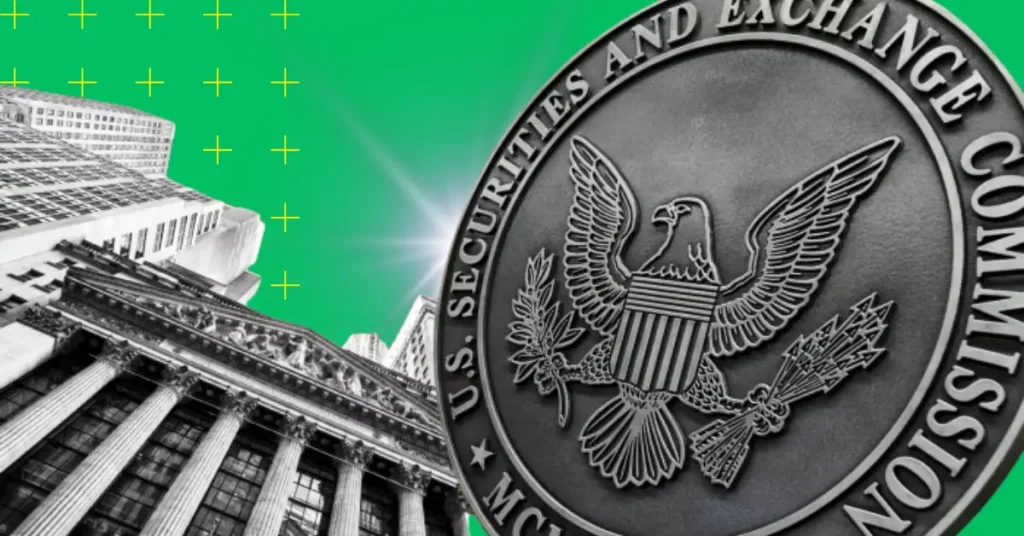As October arrives and we enter the final quarter of 2025, it’s time to reflect on the transformative narratives that have shaped the crypto industry over the past nine months. From regulatory breakthroughs to market volatility, this year has been nothing short of revolutionary for digital assets.
1. The American Crypto Renaissance: From the “Crypto President” to Project Crypto
The year began with a historic moment on January 20th when Donald Trump was sworn in as America’s first self-proclaimed “Crypto President.” This marked a seismic shift in U.S. cryptocurrency policy, ushering in an era of unprecedented regulatory clarity and innovation.
The Strategic Bitcoin Reserve
On March 7th, President Trump signed an executive order establishing America’s Strategic Bitcoin Reserve. This watershed moment wasn’t just about holding Bitcoin—it represented a fundamental recognition that digital assets are crucial to America’s financial future. The motivations were multifaceted:
- Monetary sovereignty: Strengthening the dollar’s position in an increasingly digital global economy
- Inflation hedge: Providing the Treasury with a non-correlated asset to combat currency debasement
- Innovation leadership: Ensuring America leads rather than follows in the blockchain revolution
- Geopolitical advantage: As the executive order noted, “The first nation to establish a strategic Bitcoin reserve will gain significant strategic advantages”
The Paul Atkins Era at the SEC
April 22nd marked another turning point when Paul Atkins officially replaced Gary Gensler as SEC Chairman. Atkins immediately launched “Project Crypto,” arguably the clearest and most comprehensive crypto regulatory framework ever proposed by a U.S. agency.
Key pillars of Project Crypto include:
- Clarity on securities classification: Establishing that most digital assets are commodities, not securities
- Streamlined compliance: Moving away from case-by-case enforcement to clear, predictable rules
- Support for on-chain capital formation: Enabling compliant tokenized markets
- Stablecoin integration: Building frameworks for stablecoins and on-chain settlement to reinforce dollar dominance
- Cross-agency collaboration: Coordinating with the CFTC, Treasury, and White House working groups
- Innovation-first approach: Supporting integrated platforms for trading, staking, and lending
The transformation was swift and dramatic. On May 12th, Atkins delivered his first crypto-focused address at the SEC’s “Tokenized Crypto Working Group Roundtable,” declaring his mission to “pave the way for crypto assets in American markets.” By September 17th, the SEC approved historic “universal listing standards” for exchange-traded products including digital assets, formally integrating crypto into mainstream U.S. financial markets.
2. The Tariff Wars and Crypto’s Resilience
April 2025 saw President Trump launch an aggressive tariff campaign that sent shockwaves through global markets. The escalating trade tensions, particularly between the U.S. and China, created significant volatility in crypto markets. Bitcoin plummeted from over $100,000 to $75,000 as investors grappled with the implications of tariffs exceeding 100% on certain goods.
However, by July 31st, after three months of economic standoff, the White House pivoted to a more nuanced approach. A new executive order established “reciprocal tariff” standards with differentiated rates: specific countries received individual rates while others faced a standard 10% tariff, with transshipment penalties of 40% for those attempting to circumvent the system.
The crypto market’s response revealed an important truth: While short-term volatility was inevitable, Bitcoin and other digital assets increasingly served as a hedge against geopolitical uncertainty. As traditional currency systems faced pressure from trade wars, investors found refuge in borderless, government-independent digital assets.
3. The DAT (Digital Asset Treasury) Revolution
By the end of August, over 150 publicly traded companies had announced Bitcoin treasury strategies, marking 2025 as the year corporate America truly embraced cryptocurrency. The July-September period saw an explosion of Digital Asset Treasury (DAT) adoptions across various cryptocurrencies.
The Corporate Crypto Rush
- Bitcoin treasuries: MicroStrategy and Japan’s Metaplanet led the charge with massive BTC ($83,562.00) accumulations
- Ethereum strategies: Companies like SharpLink, The Ether Machine, and ETHZilla built significant ETH ($2,726.66) reserves
- Diversified approaches: Forward Industries, Sol Strategies, and Sharps Technology accumulated SOL ($126.91), while others explored ENA ($0.24), DOGE ($0.14), and HYPE ($33.06)
The correlation between crypto adoption and stock performance was unmistakable. Companies announcing crypto treasury strategies typically saw immediate stock price appreciation, as markets interpreted these moves as forward-thinking positioning for the digital economy. However, this enthusiasm often proved ephemeral without underlying business fundamentals to support valuations.
The New Corporate Playbook
What emerged was a sophisticated financing strategy: companies issued equity, convertible bonds, and preferred shares to fund crypto purchases, effectively using traditional capital markets to gain exposure to digital assets. This created a fascinating feedback loop where traditional finance increasingly intertwined with crypto markets.
4. The Stablecoin Wars and the GENIUS Act
September 25th marked a milestone as the global stablecoin market cap exceeded $300 billion for the first time. The stablecoin sector became a battleground for regulatory frameworks and corporate competition, with major developments across multiple jurisdictions.
Global Regulatory Frameworks
Hong Kong’s Bold Move: On May 21st, Hong Kong’s Legislative Council passed the Stablecoin Bill, requiring licenses for any fiat-backed stablecoin issuers targeting Hong Kong dollars. This positioned Hong Kong as a leader in Asian crypto regulation.
The American GENIUS Act: June 17th saw the U.S. Senate pass the landmark GENIUS (Global Economic Network Infrastructure for Universal Stability) Act, establishing federal stablecoin regulations and pressuring the House to advance comprehensive digital asset legislation.
Corporate Stablecoin Initiatives
The private sector responded with unprecedented innovation:
- World Liberty Financial launched USD1 on March 25th
- Japan’s JPYC secured the country’s first digital currency transfer license on August 19th
- MetaMask surprised the market with MetaMask USD (mUSD) on September 15th
The Stablecoin Chain Revolution
A new trend emerged: blockchain networks specifically designed for stablecoin transactions:
- Circle’s Arc: An open Layer-1 blockchain optimized for stablecoin financial scenarios (August 12th)
- Stripe’s Tempo: A high-performance payment-focused blockchain developed with Paradigm (August 11th)
- Plasma’s USDT ($0.99) Chain: A $24 million initiative to build a dedicated blockchain for Tether’s USDT (February)
5. The Federal Reserve’s Pivot
September 18th brought the long-awaited Federal Reserve rate cut of 25 basis points to 4.00%-4.25%. Powell’s accompanying statement revealed the Fed’s delicate balancing act: “In the near term, inflation faces upward risks while employment faces downward risks.”
The Fed’s predicament highlighted a fundamental shift in monetary policy approach. Moving from “data dependency” to “economic forecasting,” the central bank found itself trying to predict future inflation impacts from tariffs rather than responding to current economic indicators. This policy uncertainty paradoxically strengthened the case for Bitcoin and crypto assets as alternatives to traditional monetary systems increasingly subject to political pressures.
6. The Rise of Perpetual DEXs
Hyperliquid emerged as the standout success story of 2025, earning the moniker “CEX Killer” after just two years of operation. HYPE token surged nearly 70% over three months, with Arthur Hayes predicting a potential 126x increase over the next three years.
The success of Hyperliquid triggered a competitive response from established players:
- CZ backed Aster as Binance’s answer to decentralized perpetuals
- Justin Sun rapidly deployed SunPerp to capture market share
- New generation Perp DEXs proliferated, each attempting to carve out niches with specialized derivative products
This wasn’t just about technology—it represented a fundamental shift in how traders approached derivatives, moving from centralized platforms to decentralized alternatives offering transparency, self-custody, and innovative tokenomics.
7. The Dawn of Tokenized Securities
The RWA (Real World Assets) narrative evolved beyond theory into practical implementation, with stock tokenization emerging as the bridge between traditional finance and crypto.
Major Developments
June 30th Double Launch:
- Robinhood launched EU stock tokenization services, covering 200+ U.S. stocks and ETFs, plus pre-IPO tokens for companies like OpenAI and SpaceX
- Backed Finance’s xStocks went live with 55+ tokenized stocks including Apple, Microsoft, NVIDIA, and Tesla
NASDAQ’s Historic Move: On September 8th, NASDAQ filed with the SEC to facilitate tokenized securities trading on its exchange, planning on-chain settlement by Q3 2026 while maintaining traditional order book matching.
The significance extended beyond individual initiatives—this represented traditional finance acknowledging blockchain’s superiority for settlement, clearing, and accessibility while maintaining regulatory compliance.
8. Historic Price Milestones
Bitcoin Breaks $120,000
July 14th saw Bitcoin shatter the $120,000 barrier, driven by:
- Global monetary liquidity reaching 12-year highs
- Strategic holder accumulation (HODLing behavior)
- Anticipatory “rate cut trading”
- Trump’s debt ceiling legislation
- Sustained DAT buying pressure
Predictions ranged from Bitwise’s Matt Hougan targeting $200,000 by year-end to Cathie Wood’s bold 15x projection over five years.
Ethereum’s Resurrection to $4,000
After hitting yearly lows of $1,385 in early April, Ethereum staged a remarkable 243% rally to $4,762. Catalysts included:
- Regulatory clarity from Project Crypto
- The successful Pectra upgrade
- Corporate ETH treasury adoption
- GENIUS Act stablecoin provisions benefiting Ethereum’s DeFi ecosystem
BNB ($817.35)’s Thousand-Dollar Milestone
September 18th witnessed BNB crossing $1,000 for the first time—a nearly 10,000x return from its 2017 ICO price of $0.11. This achievement validated the exchange token model and Binance’s ecosystem approach over eight transformative years.
9. The Binance Alpha Token Launch Phenomenon
Binance Alpha emerged as the bull market’s “wealth creation engine,” revolutionizing token launches:
- March: Alpha 2.0 launch
- June: “Pre-TGE Booster” mechanism allowing retail investors institutional-level access
- September: Evolution to “points screening + targeted airdrops”
With 305 tokens launched through Binance Alpha per CoinMarketCap data, the platform democratized early-stage crypto investing. However, this token proliferation raised sustainability questions about market absorption capacity and long-term value creation.
10. Circle’s Landmark IPO
June 5th marked a watershed moment as Circle went public on the NYSE under ticker CRCL. The stock surged 160% on day one, reaching a $21.5 billion valuation.
GSR’s Carlos Guzman observed: “With Circle revealing Wall Street’s appetite, expect accelerated IPO plans from multiple crypto companies.” The IPO pipeline includes potential candidates like FalconX, Gemini, Bullish, BitGo, Kraken, and various international exchanges, signaling crypto’s maturation as an asset class worthy of public market participation.
11. Bitcoin 2025 Conference: Institutional Validation
The May 28th Bitcoin 2025 Conference crystallized crypto’s political and institutional acceptance:
Vice President Vance: “Bitcoin will become a strategically significant asset for America within the decade.”
SEC Commissioner Hester Peirce: “Freedom to use technology ultimately leads to integration with traditional finance. Our role is facilitating innovation while preserving value transfer freedom.”
White House Executive Director Bo Hines: “We’re steadily progressing toward becoming the world’s Bitcoin superpower. This transcends partisan politics—it’s a financial system revolution.”
Tether CEO Paolo Ardoino: “With over 100,000 Bitcoin holdings and aggressive mining expansion, Tether will become the world’s largest Bitcoin miner by year-end, surpassing all public companies.”
Looking Ahead: The Fourth Quarter and Beyond
As we enter Q4 2025, several themes emerge from the year’s developments:
- Regulatory Clarity: The U.S. has decisively moved from enforcement-by-litigation to clear frameworks, setting the stage for institutional adoption at unprecedented scales.
- Corporate Integration: The DAT movement and tokenized securities represent just the beginning of corporate crypto adoption. Expect acceleration as first-movers demonstrate success.
- Infrastructure Maturation: From specialized stablecoin chains to perpetual DEXs, crypto infrastructure is becoming increasingly sophisticated and purpose-built.
- Geopolitical Realignment: As nations recognize crypto’s strategic importance, expect continued competition for blockchain leadership and talent.
- Traditional Finance Convergence: The lines between TradFi and DeFi continue to blur, with established institutions embracing blockchain while maintaining regulatory compliance.
The first three quarters of 2025 have fundamentally transformed cryptocurrency from a speculative asset class to a cornerstone of the global financial system. As traditional institutions, corporations, and governments embrace digital assets, the question is no longer whether crypto will succeed, but how quickly it will reshape the entire financial landscape.
The foundation has been laid. The infrastructure is being built. The fourth quarter promises to be the launching pad for crypto’s next evolutionary leap. Welcome to the future of finance—it’s already here.




















 24h Most Popular
24h Most Popular






 Utilities
Utilities